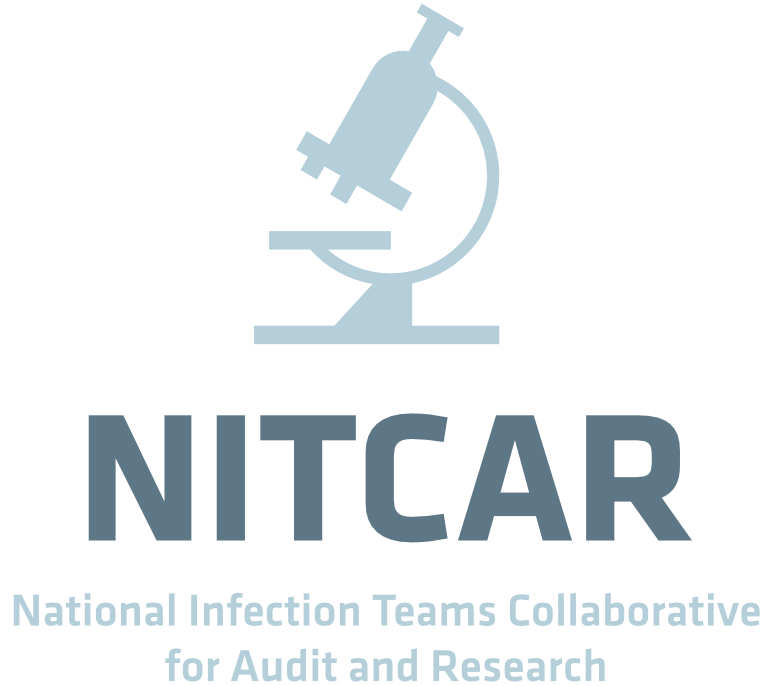APP
Audit Examining Amikacin Prescribing Practice (APP) in the UK 2025
The link to the survey can be found here, or please scan the QR code below:

Summary
The European Committee on Antimicrobial Susceptibility Testing (EUCAST) has advocated since 2018 that Amikacin should be dosed at 25-30 mg/kg once daily. This is a much higher dose than the 15 mg/kg once daily that has been used previously and the higher dose has yet to become universal practice. This study aims to look at the use of Amikacin nationally to see whether most Trusts are following the higher dose recommended by EUCAST or the more traditional lower dose and whether the use of different doses is associated with different outcomes in terms of efficacy and toxicity.
Background
The European Committee on Antimicrobial Susceptibility Testing (EUCAST) has advocated high dosages for aminoglycosides when treating Enterobacterales since 2018.
Prior to the publication of ‘Clinical breakpoints – bacteria (v8.0)’, the standard dose of Gentamicin advised by EUCAST was 5mg/kg once daily (OD) and the standard dose of Amikacin was 20mg/kg OD. After its publication in 2018, all Enterobacterales (then Enterobacteriaceae) were deemed to always need high dose aminoglycosides with 7mg/kg OD being recommended for Gentamicin and 30mg/kg OD being advised for Amikacin.
Since 2020 and the publication of ‘Clinical breakpoints – bacteria (v10.0)’, EUCAST standardised its recommended dosing for aminoglycosides for all organisms at a higher dose of 6-7 mg/kg OD for Gentamicin and 25-30 mg/kg OD for Amikacin and these have remained consistent since then.
Despite this, concerns over toxicity (notably nephrotoxicity and ototoxicity) have meant that many microbiologists and clinicians have been reluctant to use the new higher doses advised by EUCAST.
Clinical guidelines likewise have not all followed EUCAST’s guidance on this. The BNF still advises a dose of 5–7 mg/kg OD for Gentamicin and 15 mg/kg OD for Amikacin for Gram negative sepsis.
Other studies run through NITCAR have looked at Gentamicin usage nationally. This study plans to examine the prescribing of Amikacin nationally to see whether most Trusts are following the higher dose recommended by EUCAST or the more traditional lower dose and whether the use of different doses is associated with different outcomes in terms of efficacy and toxicity.
This is of particular relevance to Trusts like our own who are experiencing significant rates of Gentamicin resistance and who have or may need to switch to Amikacin as their first line aminoglycoside going forwards.
Who Can Participate?
Any Trust in the United Kingdom can participate. The survey can be filled out by any infection trainee, associate specialist, clinical scientist, consultant and/or antimicrobial pharmacist.
Method
Participants will initially be asked to fill out a short series of questions regarding the use of Amikacin in their Trust including dosing, whether Amikacin is used regularly and whether it is used as monotherapy for Gram negatives.
Those who use Amikacin regularly will be invited to fill out a further short series of questions regarding its usage and outcome in individual patients. Up to 20 such outcomes can be submitted per Trust, though respondents need not submit as many as this and any number of submissions from 1 patient to 20 patients will be welcomed.
All data will be anonymised. No information will be sought that could identify patients.
Authorship Policy
It is our intent to seek a publication at the end of this study. Credit will be acknowledged to responders under the NITCAR Collaborative.
Any Questions?
Please contact Dr Martin Brown (martin.brown20@nhs.net), Dr James Hinton (j.hinton@nhs.net) or Miss Ashna Makwana (ashna.makwana@nhs.net) at King’s College Hospital NHS Foundation Trust.
